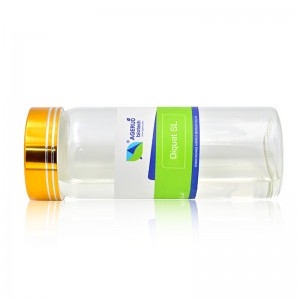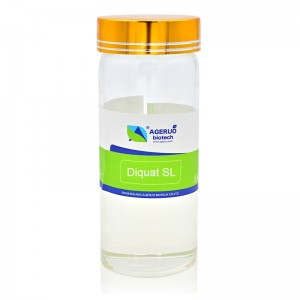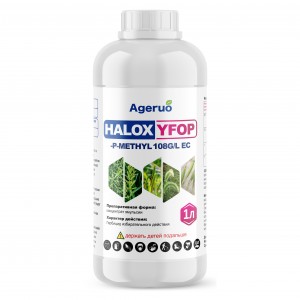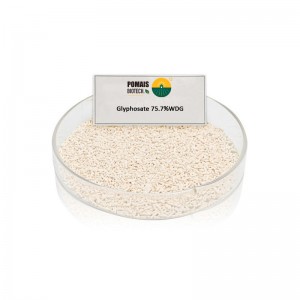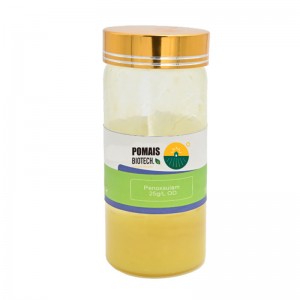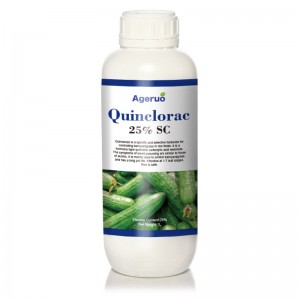Products
POMAIS Diquat 15% SL
Introduction
| Product Name | Diquat 15% SL |
| CAS Number | 2764-72-9 |
| Molecular Formula | C12H12N22BR; C12H12BR2N2 |
| Classification | Herbicide |
| Brand Name | POMAIS |
| Insecticide Shelf life | 2 Years |
| Purity | 15% SL |
| State | Liquid |
| Label | Customized |
| Formulations | SL; TK |
Benefits of Using Diquat
Efficiency and effectiveness: Diquat works quickly and provides effective control of weeds, reducing competition for resources.
Environmental impact: When used correctly, Diquat has a minimal environmental footprint and does not persist in soil or water.
Mode of Action
Diquat is a bipyridine type, sterile crop desiccant. Diquat can quickly dehydrate the green parts of all plants. It rained several hours after the application, and the efficacy was not affected. Spray on mature or brown bark has no effect. The solution will be passivated immediately after it touches the soil, and will not affect the roots of crops.
How Diquat works: Diquat disrupts the photosynthesis process in plants by producing reactive oxygen species (ROS) that damage cell membranes, leading to rapid desiccation and death of the plant tissue.
Impact on plants: Diquat herbicide causes immediate wilting and browning of foliage, making it an effective tool for quick weed control and crop desiccation.
Applications in Agriculture
Use in different crops: Diquat is versatile and can be used on a variety of crops, including cotton, flax, alfalfa, clover, lupine, rapeseed, poppy, soybean, peas, beans, sunflower, grains, corn, rice, and sugar beet.
Pre-harvest desiccation: Farmers use Diquat for pre-harvest desiccation to ensure uniform crop drying, making harvesting easier and more efficient.
Crop-Specific Usage
Cotton: Diquat helps in defoliating cotton plants, aiding in the harvesting process.
Flax and Alfalfa: It is used to dry these crops before harvest, improving the quality of the final product.
Clover and Lupine: Diquat controls broadleaf weeds, enhancing the growth and yield of these crops.
Rapeseed and Poppy: Pre-harvest application of Diquat ensures better seed quality and harvesting efficiency.
Soybean, Peas, and Beans: It aids in the desiccation of these legumes, facilitating easier harvest.
Sunflower, Grains, and Corn: Diquat ensures uniform drying of these crops, preventing losses during harvest.
Rice and Sugar Beet: Effective in controlling weeds and aiding in pre-harvest drying.
Usage in Vineyards and Orchards
Grape vineyards: Diquat controls annual broadleaf weeds, promoting healthier grapevines.
Pome fruits (e.g., apples, pears): It helps manage weeds that compete with fruit trees for nutrients and water.
Stone fruits (e.g., cherries, peaches): Diquat ensures clean orchards, reducing competition from weeds.
Bush berries (e.g., strawberries, blueberries): It is effective in controlling runners and weeds in berry patches.
Usage in Vegetable Gardens
Vegetables: Diquat is used for weed control in various vegetable crops, ensuring better growth and yield.
Ornamental plants and shrubs: It helps maintain clean and healthy garden beds, free from invasive weeds.
Suitable crops:

Control of Annual Broadleaf Weeds
Importance of weed control: Effective weed control is crucial for maximizing crop yields and ensuring healthy plant growth.
Types of weeds controlled by Diquat: Diquat targets a wide range of annual broadleaf weeds, making it a valuable tool for farmers and gardeners.
Aquatic Weed Control
Diquat's role in managing aquatic weeds: It is also used to control aquatic weeds in water bodies, helping maintain clear and navigable waterways.
Methods of application: Diquat can be applied through foliar sprays or directly into water bodies to manage invasive aquatic plants.
Weed types:

FAQ
What is Diquat?
Diquat is a non-selective, fast-acting herbicide used to control a wide range of weeds and for pre-harvest crop desiccation.
How does Diquat work?
Diquat disrupts photosynthesis in plants, leading to rapid desiccation and death of plant tissue.
What crops can Diquat be used on?
Diquat can be used on various crops, including cotton, flax, alfalfa, clover, lupine, rapeseed, poppy, soybean, peas, beans, sunflower, grains, corn, rice, and sugar beet.
Are there any safety concerns with Diquat?
When handled and applied correctly, Diquat is safe. It is important to follow safety guidelines and use protective equipment during application.
How does Diquat compare to other herbicides?
Diquat is favored for its fast-acting nature and broad-spectrum effectiveness, though it must be used responsibly to avoid potential negative effects on non-target plants and organisms.
Diquat Dibromide vs Glyphosate
Diquat Dibromide: A contact herbicide that quickly kills the plant tissue it touches but doesn't translocate through the plant. It's often used in aquatic environments.
Glyphosate: A systemic herbicide that is absorbed through the leaves and translocated throughout the plant, killing it entirely. It's widely used for weed control in agriculture and other settings.
What does Diquat kill?
Diquat kills a wide range of aquatic and terrestrial weeds, including algae, pondweed, cattails, and grasses.
Is Diquat herbicide safe for fish?
Diquat can be toxic to fish if used inappropriately. It’s important to follow the label instructions and apply it in a way that minimizes exposure to fish.
How to apply Diquat to a pond?
To apply Diquat to a pond, mix the herbicide with water according to the label instructions and use a sprayer to apply it evenly over the water surface. Ensure proper dosages and avoid treating the entire pond at once to prevent oxygen depletion.
Will Diquat kill cattails?
Yes, Diquat can kill cattails by applying it directly to the foliage.
Will Diquat kill duckweed?
Yes, Diquat can be effective in killing duckweed when applied to the water surface where duckweed is present.
Will Diquat kill fish?
If used improperly, Diquat can be harmful to fish. It's crucial to follow label instructions and use the correct dosage to minimize risks.
Will Diquat kill lily pads?
Yes, Diquat can kill lily pads by applying it directly to the leaves.
Will Diquat kill trees?
Diquat is not typically used to kill trees. It is more effective on herbaceous plants and weeds.
How to use Diquat herbicide?
Diquat herbicide should be mixed with water as per label instructions and applied using a sprayer. Ensure to wear protective clothing and follow safety guidelines.
Will Diquat kill watermeal?
Yes, Diquat can kill watermeal when applied correctly to the water surface.
Can Diquat manage Phragmites?
Diquat can be used to manage Phragmites, but it may require multiple applications and is generally more effective when combined with other management strategies.
Are you a factory?
We could supply insecticides, fungicides, herbicides, plant growth regulators etc. Not only we have our own manufacture factory ,but also have long-term cooperated factories.
What packaging options are available for me?
We can provide some bottle types for you to choose, the color of the bottle and the color of the cap can be customized.
Why Choose US
Strict quality control procedure in each period of order and the third-party quality inspection.
Have cooperated with importers and distributors from 56 countries all over the world for ten years and maintain a good and long-term cooperative relationship.
Professional sales team serve you around the whole order and provide rationalization suggestions for your cooperation with us.



